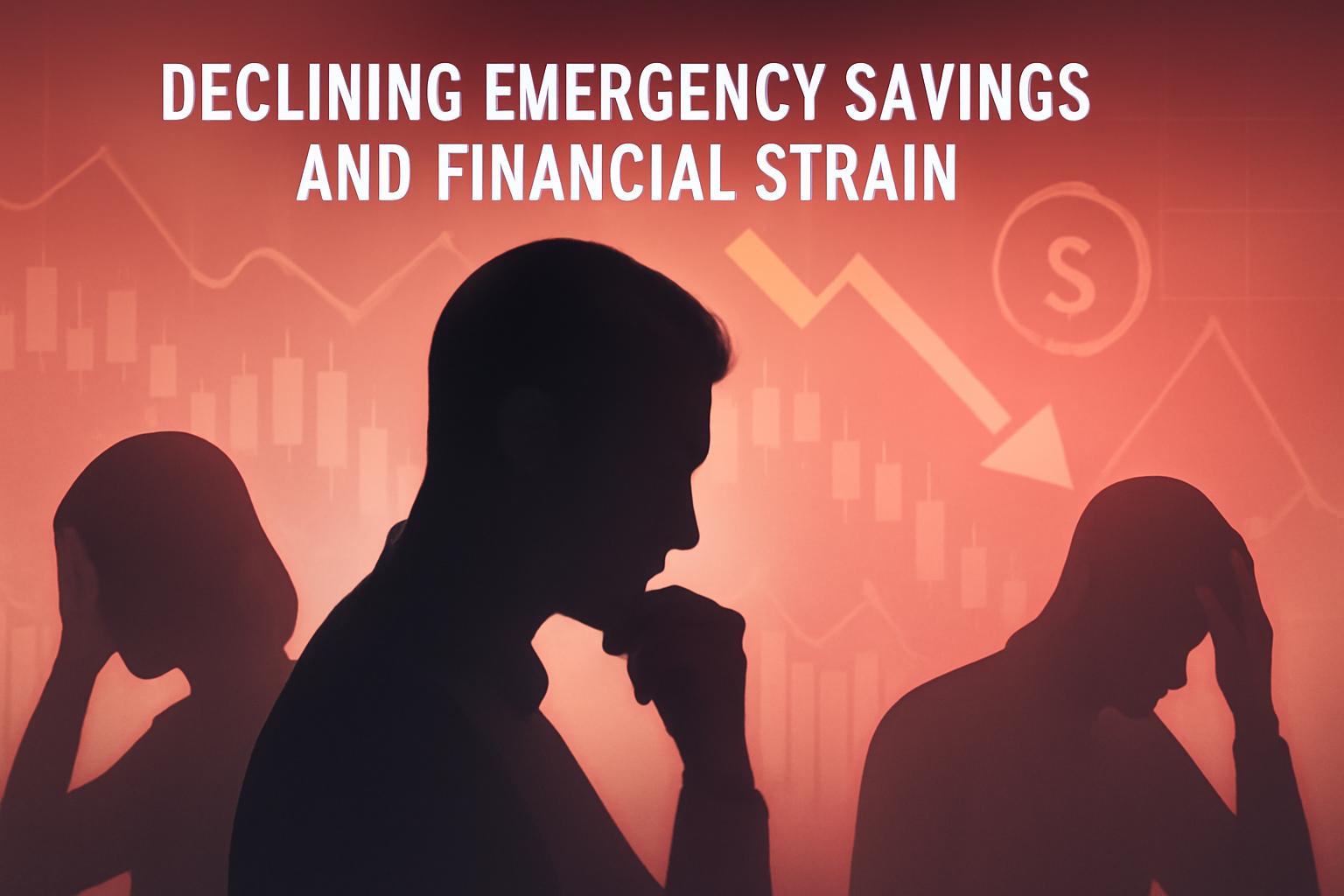Emergency Funds Shrink as Americans Face Growing Financial Pressure
Emergency savings, long regarded as a cornerstone of financial stability, are diminishing for many Americans. According to a June survey by budgeting app Empower, one-third of Americans report having no emergency fund at all. Among those who do save, the median amount set aside for unexpected expenses has fallen to $500, down from $600 a year earlier.
Rebecca Rickert, head of communications at Empower, highlighted the broader economic context: “The study suggests financial precarity at a time when household finances may be stretched due to rising prices and inflation.” This trend is not confined to lower-income groups; even higher earners with retirement accounts are reporting reduced emergency savings. A recent BlackRock survey found that full-time employees contributing to retirement accounts with at least $5,000 saved now hold a median emergency fund of $20,000, a $5,000 decrease from the previous year.
Recommended Emergency Savings and Practical Approaches
Financial experts typically advise maintaining an emergency fund covering three to six months of essential expenses. For example, if monthly costs total $3,000, a well-prepared individual should ideally save between $9,000 and $18,000. However, Alyson Basso, a certified financial planner at Hayden Wealth Management, suggests a pragmatic approach: “Start by saving enough to cover just your essential costs for three months. In a true emergency, many non-essential expenses can likely be reduced.”
Financial Well-Being Linked to Emergency Savings
Even modest emergency savings can have a substantial positive impact. A May study by Vanguard involving over 12,000 investors found that those with at least $2,000 in emergency funds scored 21% higher on financial well-being metrics than those without. The highest well-being scores—34% above those lacking savings—were observed in individuals who had both $2,000 saved and three to six months’ worth of expenses covered.
Paulo Costa, senior behavioral economist at Vanguard and co-author of the study, emphasized the benefits: “People with emergency savings have a higher level of financial well-being, spend less time thinking about and dealing with their finances, and are less distracted at work.” The study utilized the Consumer Financial Protection Bureau’s financial well-being questionnaire to assess outcomes.
As inflation and cost of living pressures continue, these findings underscore the importance of building and maintaining emergency savings to safeguard financial health.
FinOracleAI — Market View
The reduction in emergency savings among Americans signals increased financial vulnerability, which may dampen consumer spending in the near term as households prioritize debt repayment and essential expenses. This environment could constrain economic growth and affect sectors dependent on discretionary spending.
Risks include further erosion of savings due to persistent inflation and economic uncertainty. Market participants should monitor consumer credit trends and inflation data closely, as these will influence the pace of recovery in household financial resilience.
Impact: negative













